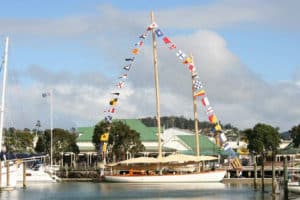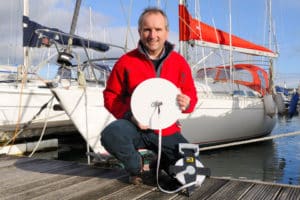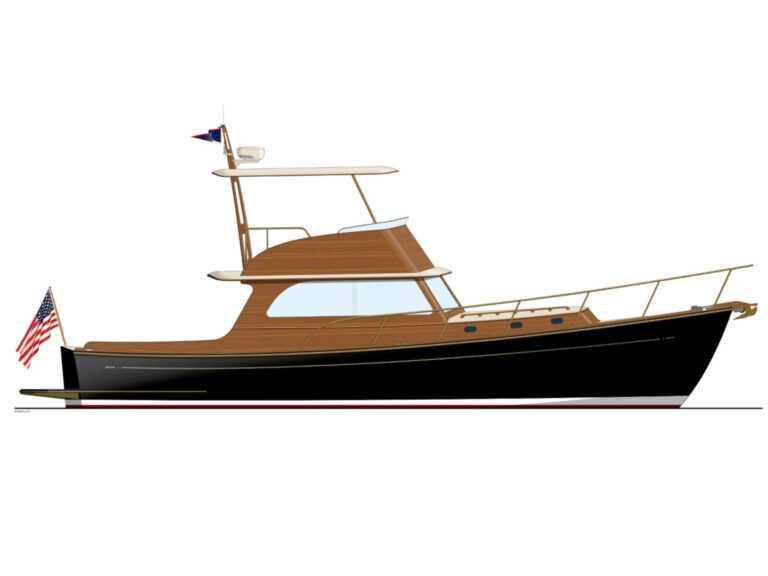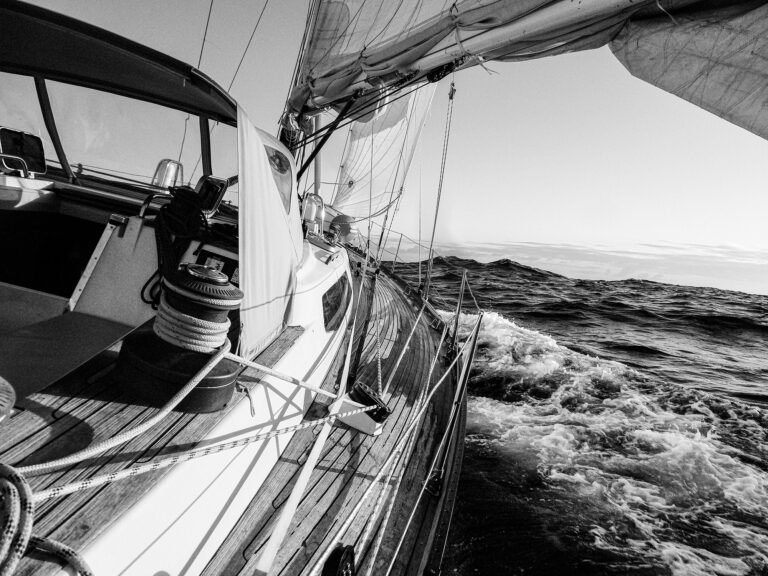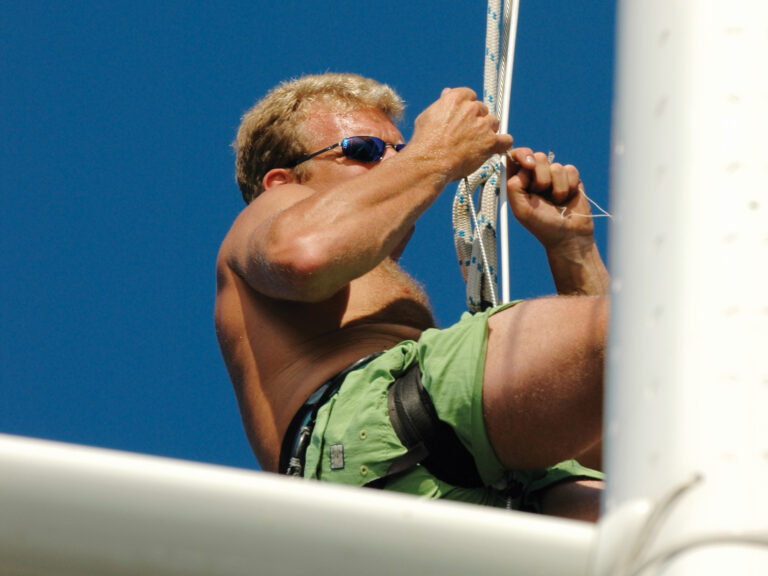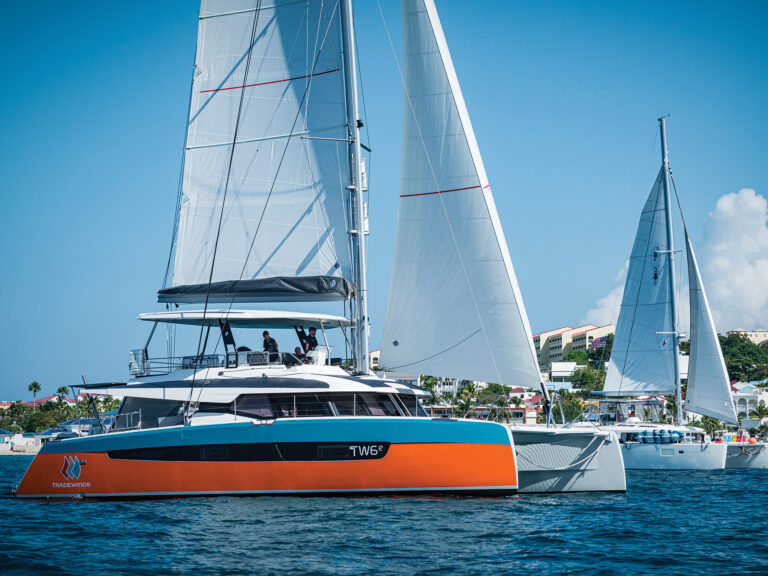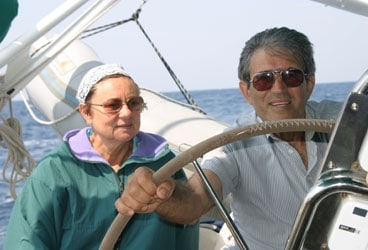
Cornell interview 368
At 67, Jimmy Cornell remains a whirling dervish. A three-time circumnavigator; the founder of the ARC cruising rally; and the author of literally hundreds of magazine articles and a slew of voyaging bibles, including the invaluable World Cruising Routes, he remains a steadfast sailor who enjoys cruising the waterways of Europe with his wife, Gwenda, aboard their Ovni 43, Aventura. Jimmy is on hand with Cruising World for a series of seminars this month at the Marriott Hotel in Annapolis, Maryland, during the U.S. Sailboat Show. (On Oct. 7th, he’ll speak about route planning and on Oct. 6 he’ll join the panel discussion “Cruising in Stages.” See pages 18-19 of the October 2007 issue or visit the CW booth for times.) The show will also mark the debut of his latest book, A Passion for the Sea: Reflections on Three Circumnavigations. We spoke with Jimmy about the book, and his take on a number of voyaging matters, in anticipation of his Annapolis appearances.
Tell us about the new book. Is it different than your previous works?
Well, it is. My previous books were all very objective, just the facts. But over time people have asked me about my own personal views and opinions on things. So this book is much more subjective, I’ve really tried to explain how things worked or didn’t work from my own point of view. It’s all there, warts and all. We all make mistakes, and as long as they’re not fatal ones, we all learn from them.
What’s one common mistake would-be voyagers make?
People don’t realize they need at least a full year to sort out a new boat before they can start voyaging. The size of the boat doesn’t matter at all, it’s the same for big boats and small ones. Boats aren’t like cars, you can’t just drive off and never have a problem. Every single new boat I’ve ever seen had some sort of issue that needed to be addressed. You can’t just leave a boatyard with a new boat and sail across the Atlantic.
What about once they’re under way?
Boats are not floating caravans or just a cheap means to go from A to B, to have a cheap existence and an easy retirement. There’s a lot more to it. People make these very basic mistakes of not understanding that you really need to love sailing and feel that sailing is a part of you. If you don’t have that relationship with the sea, don’t enjoy sailing or being on the ocean, you shouldn’t be there. I’ve seen it many times. It’s a major problem.
You founded the ARC Rally across the Atlantic Ocean and that led to round-the-world rallies like the Millennium Odyssey. But many sailors are critical of rallies, likening them to traveling in a herd. How do you respond to those critics?
With everything in life, you have a choice. I wouldn’t necessarily join a rally myself, today, with the experience I have. But the critics don’t see the fact that a lot of people who wouldn’t have had the means or the courage to cross an ocean wouldn’t have gone offshore without a rally like the ARC. I’ve met a lot of people who’ve thanked me for helping them take that first leap, and they’re more important than the critics. And on several occasions, people who’d been very critical of us managed to get into trouble and it was very useful for them to have the ARC about to lend a hand when they lost their rudder or mast. So some people should think more carefully before they criticize.
How has cruising changed since your first voyage, over forty years ago?
It’s much easier and safer. The boats are better. So is the equipment. Look at GPS chart plotters. Life aboard is much easier.
What about the folks themselves?
Well, the change among people has also been quite dramatic. There’s more of a city mentality out there, like when your TV breaks down and you call someone to fix it. They expect the same thing in the middle of the ocean. It’s why there are more emergencies offshore nowadays. People don’t know how to cope with a problem.
The other thing is that people are less sociable. It’s quite surprising and annoying to arrive in a remote anchorage and people don’t even wave at you. Thirty years ago, people would immediately jump in their dinghies and come over. “Do you need help? Are you okay?” I don’t want to generalize but I think a lot of people are cruising for the wrong reasons.
Along with this shift in attitudes, I think the prevalence of super yachts has changed things. They come into a port and splash a lot of money around, then you come in afterwards on your little cruising boat and everyone supposes that you’re just as rich so you pay through the nose for everything. So you have the safety and reliability of boats, which are plusses, but for the most part there are more negatives.
What are the highlights of your sailing career?
The first one is when I’m cruising with my family; I very much enjoy being with my family at sea. The other is just being on the boat, with everything that goes with it. Being in the middle of an ocean on your own boat is just such a rush, such an uplifting experience. I’m so sorry that so many people miss it. The cruising, and visiting other countries, that comes afterwards. It’s not the point. Sailing is. I find it brings me alive. And I am alive.

